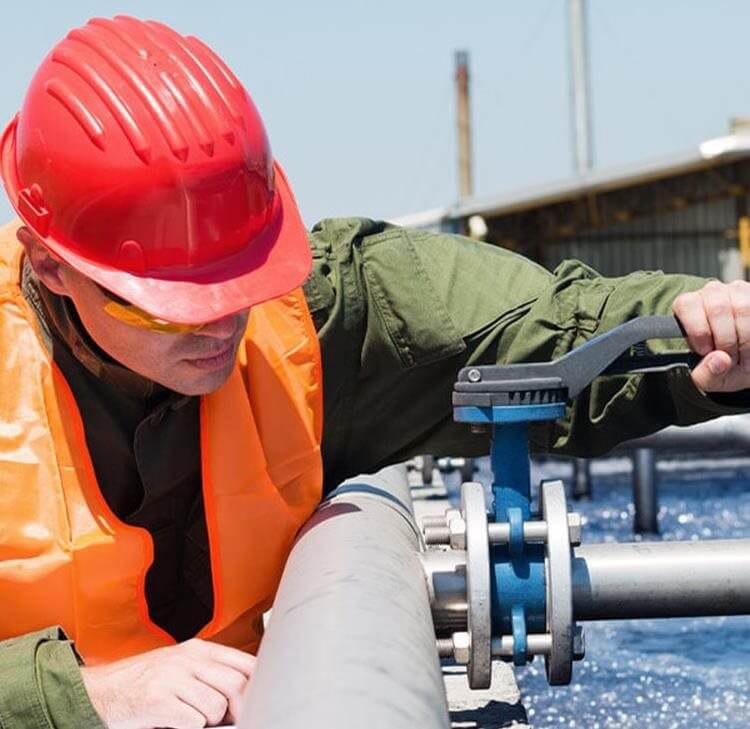Artificial intelligence (AI) is transforming industries worldwide, and the food and drink sector is no exception. This article explores AI's measured and nuanced impact across the food chain, from farm to fork and beyond.
Precision agriculture, food safety and quality control
While AI cannot replace the processes, professionals and agricultural workers currently used in the food and drink industry, it can provide data-driven insights to support informed decision-making and address the limitations to traditional methods of food production.
The ability to analyse data from crops allows us to monitor irrigation, identify contaminants and defects, and allow us to make informed decisions about the conditions, pest control and resource allocation in the production process. The data collected can also be used for predicting shelf life and the nutritional value of products on the shop floor, leading to increased yields and reduced waste. This initiative has already been implemented by HarvestEye (developed by B-Hive), which can provide insights on crops, such as mapping crop variability across fields and provide field performance data, allowing agricultural workers to predict and manage contaminants and risks in the harvesting process.
AI is evidently a step in the right direction in promoting sustainability in the industry, without compromising the quality and taste of the food produced. However, where AI inputs data, nutrients and information, products often require new production methods (such as fermentation, cell cultivation or molecular farming), any error in the AI model could trigger excessive fertilization and harmful practices which have the potential of leading to large-scale crop failures. It is therefore imperative that, while the data derived from AI can be of great benefit in the industry, there is a need for careful design and responsible implementation.
Sustainable food production
AI has also recently been used in the development of plant-based alternatives and cultured meat, offering more sustainable protein sources with the same taste and nutritional values as the animal-based equivalent.
This initiative is being explored by SavorEats, in its recent partnership with Sodexo, a leader in the food services industry, in developing a robot to produce meat alternatives based on each diner’s preferences.
Supply chains
The ability of AI to analyse real-time data and forecast variables in the supply chain is also of great benefit to suppliers, working to:
- forecast demand;
- reduce food waste;
- optimise delivery routes and cut environmental impact; and
- cut transportation costs,
all of which ultimately allow us to streamline complex food supply chains and promote sustainable practices.
Consumer experiences
Nestlé has partnered with the Tastewise platform, in using market data to project which products and concepts are most likely to be a success. In 2023, Tastewise also launched TasteGPT, which produces real-time data about marketing, consumer trends and research.
This is a clear example of where AI can be used to personalise consumer interactions with food and drink, such as suggesting recipes and products based on preferences, analysing shopping behaviours and dietary needs, and offering convenience and inspiration to consumers. While there are many risks associated with the collection of personal data (which are further considered below), the data produced by AI gives the food and drink industry an insight into consumer trends, can work to reduce waste, and improve the overall customer experience.
Challenges and the path forward
While AI presents exciting opportunities, it is not without its challenges. As highlighted above, if the output of AI is not closely monitored and responsibly implemented, AI has the potential to have catastrophic impacts on the environment.
The function of AI is heavily reliant on data, and therefore, there are increasing concerns for the impact of AI on data privacy. In 2021, there was a cyberattack on JBS, the world’s largest meat processor, where the meat giant was forced to pay around $11 million in ransom to end the attack on its computer networks, which temporarily shut down some of its operations in Australia, Canada and the US. There is also an inherent concern for access to personal data collected in the process, such as consumer habits, preferences and dietary requirements. Another question to keep in mind when dealing with data is of course who owns the data which the AI is reliant on. Having an understanding of, and ensuring compliance with, data protection and privacy laws, such as the Data Protection Act 2018 and the General Data Protection Regulation, is therefore essential. These regulations establish stringent requirements for handling and safeguarding consumer data, and non-compliance with these laws can result in significant penalties, reinforcing the importance of prioritising data protection measures within UK-based enterprises in the food and drink industry.
The use of AI to develop alternatives to food processes, cultivation and supply chains also highlights the increasing relevance of intellectual property in the sector. In developing processes and recipes, companies in the food and drink sector should be alive to the risks associated with intellectual property resulting from research and development.
Following the decision in Emotional Perception AI Ltd v Comptroller-General at the end of 2023, the UK may now be the most favourable jurisdiction in the world for AI patents. Historically, patent applications relating to AI inventions struggled to overcome section 1(2)(c) of the Patents Act 1977 which excludes a “program for a computer” from protection. However, in this recent decision the High Court ruled that Artificial Neural Networks were not themselves a program for a computer. While it remains to be seen exactly how this will be implemented, this appears to be good news for anyone in the industry seeking to patent an AI invention.
The UK also offers companies corporation tax deductions via the Patent Box. Under the Patent Box, all profits which are attributable to patented inventions will be taxed at 10% corporation tax, as opposed to the current main rate of 25%. This will likely act as an added incentive for food and drink businesses to patent AI inventions.
Trade secrets are also often a crucial way of protecting proprietary AI systems, and companies should ensure they have the legal, technological and organisational methods in place to protect them.
As AI progresses so too does the need to regulate its use. The UK’s regulatory approach to AI is currently evolving but the EU’s AI Act (the first ever legal framework on AI) sets out a ‘gold standard’ for AI regulation. Therefore, ensuring compliance with the AI Act would be a sensible approach for anyone using AI.
It is also worth being aware of the National Security and Investment Act 2021 if a corporate transaction or investment is envisaged in the future in relation to a business that uses or has developed AI. AI is one of the “mandatory sectors” that if the transaction is caught by the legislation requires notification and prior approval from the Investment Security Unit (ISU) within BEIS. This causes timing consequences for the proposed transaction as completion cannot take place before approval from the ISU who have an initial assessment period of 30 working days.
Shaping a Sustainable Future
AI's impact on the food and drink industry is undeniable. By approaching this technology with a balanced perspective, harnessing its potential while addressing challenges, we can create a more sustainable, efficient, and equitable food system.










































